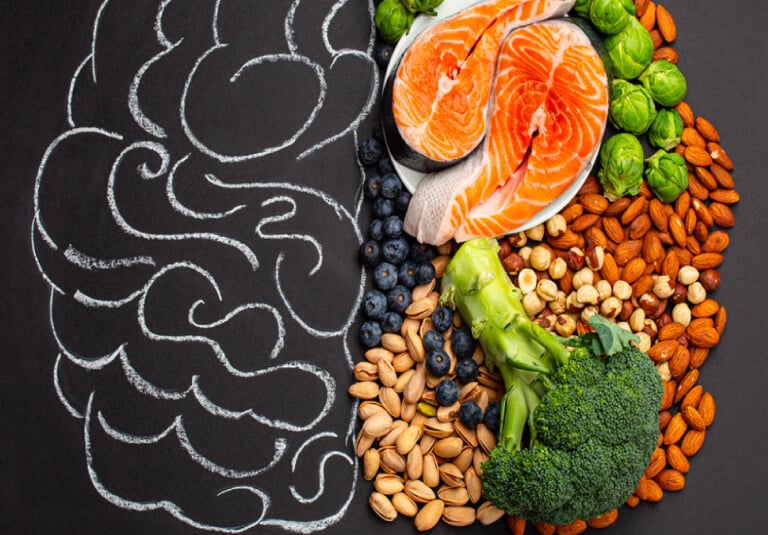How Nutrition Impacts Mental Health

Table of Contents
The saying “you are what you eat” holds more truth than we often realize, especially when it comes to mental health. The connection between what we consume and how we feel emotionally is undeniable. Proper nutrition not only fuels the body but also supports the brain, which directly impacts mood, focus, and overall mental well-being.
The Brain and Food: A Powerful Connection
The brain is an energy-intensive organ, using about 20% of the body’s daily calorie intake. What you feed it matters. Nutrient-rich foods provide the building blocks for neurotransmitters like serotonin and dopamine, which are crucial for mood regulation. Dr. Rajan Gosain, MD, highlights, “The food you consume directly impacts your brain’s health and function, influencing everything from your mood to your memory.” On the other hand, a diet high in processed foods, sugar, and unhealthy fats can lead to inflammation, which has been linked to anxiety, depression, and cognitive decline.
Key Nutrients for Mental Health
Certain nutrients play a vital role in supporting mental well-being:
Omega-3 Fatty Acids: Found in fish, walnuts, and flaxseeds, omega-3s reduce inflammation and support brain health, improving symptoms of depression and anxiety.
Magnesium: This “calming mineral,” found in leafy greens, nuts, and seeds, helps regulate stress hormones.
Antioxidants: Fruits and vegetables like berries, spinach, and broccoli protect the brain from oxidative stress, promoting long-term mental health.
B Vitamins: Essential for energy production and brain function, these vitamins are abundant in whole grains, eggs, and legumes.
The Gut-Brain Axis
Emerging research highlights the importance of gut health in mental well-being. The gut and brain are closely connected through the gut-brain axis. A healthy gut microbiome, supported by probiotics (found in yogurt and fermented foods) and fiber (found in fruits and vegetables), can improve mood and reduce symptoms of anxiety and depression.
A Mood-Boosting Diet
Eat Whole Foods: Focus on unprocessed foods rich in nutrients.
Incorporate Healthy Fats: Add sources of omega-3s like salmon or chia seeds to your meals.
Stay Hydrated: Dehydration can affect focus and mood.
Limit Sugar: Reduce consumption of sugary drinks and snacks.
Focus on Variety: A diverse diet supports a healthy gut microbiome.

Foods like salmon are high in omega-3.
Pan-Seared Swordfish – Rich in omega-3 fatty acids, this dish supports brain health and may help reduce symptoms of depression and anxiety.
Fish Broth – Packed with essential minerals like magnesium and zinc, fish broth nourishes the nervous system and enhances mental clarity.
Branzino – High in protein and omega-3s, this fish improves mood and supports cognitive function.
Mango Habanero – Mango is loaded with antioxidants that help reduce stress, while spicy habanero may release endorphins for a natural mood boost.
Guacamole – Avocados provide healthy fats, magnesium, and B vitamins, all of which support relaxation and mental well-being.
Recipe Ideas:
Final Thoughts
While food alone isn’t a cure-all for mental health challenges, maintaining a balanced and nutrient-dense diet can significantly improve mood, energy levels, and resilience to stress. Pairing good nutrition with other self-care practices, like exercise and therapy, creates a strong foundation for mental wellness.
Nourish your body, fuel your mind, and feel the difference.